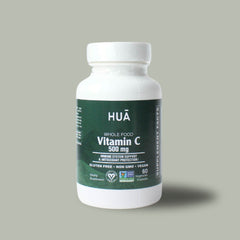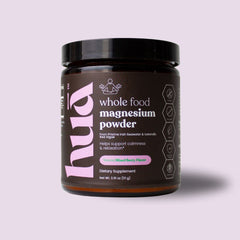Can Yogurt Help Prevent Diabetes?
Yogurt, long celebrated as a versatile and nutritious food, has recently been in the news for a new qualified health claim. Last month, the Food and Drug Administration (FDA) made an announcement, allowing yogurt manufacturers to claim that their products may help prevent Type 2 diabetes. While it’s great news for encouraging more people to eat yogurt and for validating existing yogurt lovers, it’s important to understand what requirements the claim must meet and the caveats it has.
The FDA's Verdict
The FDA's decision stemmed from a thorough review of scientific studies investigating the relationship between yogurt consumption and the risk of Type 2 diabetes. Although the evidence wasn't unanimously strong, the FDA concluded that there was "limited scientific evidence" to support the notion that consuming yogurt could potentially reduce the risk of developing Type 2 diabetes. The FDA also required the claim to communicate a minimum yogurt intake for it to qualify - that specifically consuming at least two cups (equivalent to three servings) of yogurt per week may confer a reduced risk of Type 2 diabetes.
The Science Behind It
The FDA's review encompassed 28 studies. Some studies indicated a lower risk of Type 2 diabetes among individuals who consumed more yogurt regularly while other studies failed to establish a significant link between yogurt intake and diabetes prevention. A study that did find a significant link was one of the largest studies. Conducted in 2014, the study had nearly 200,000 participants in the United States. They found that participants who consumed 2 or more servings of yogurt per week had a 12% lower risk of Type 2 diabetes compared to those who did not regularly consume yogurt. On the other hand, a smaller Australian study conducted in 2019 of almost 8,000 women did not find a significant relationship between yogurt intake and diabetes risk, though it did find an inverse association between total fermented dairy intake and risk of cardiovascular disease (CVD). These findings underscore the complexity of dietary research and the challenges of establishing a causal relationship in observational studies, where you study participants over a period of time. In that period of time, a number of other factors could have influenced the participants’ risk for Type 2 diabetes, such as if they incorporated other healthy habits in addition to their yogurt consumption or not. Thus, the FDA noted that there was enough evidence for a qualified health claim but not yet an authorized health claim, which requires additional research.
The Role of Yogurt in Diabetes Prevention
While the evidence may not be definitive, yogurt is a healthy food, and this health claim can encourage people to adopt yogurt as a healthy snack alternative instead of processed options. There are several plausible mechanisms by which yogurt could contribute to lowering the risk of Type 2 diabetes. Yogurt is a rich source of essential nutrients, including protein, vitamins, and minerals. Moreover, it is rich in probiotics, containing live bacteria that have been associated with reduced inflammation and improved insulin sensitivity. A 2019 study found that pregnant women taking a probiotic supplement significantly had less insulin resistance and improved blood sugar levels compared to pregnant women who took a placebo supplement.
Putting It Into Perspective
While yogurt can be a valuable addition to a balanced diet, it's essential to recognize that it's not a standalone solution for preventing Type 2 diabetes. Maintaining a healthy weight, exercising regularly, and adhering to a diverse, nutrient-rich diet of whole foods are paramount. Additionally, minimizing the intake of sugary beverages, processed meats, and ultra-processed foods is crucial in diabetes prevention.
It’s also an important caveat that the FDA allowed this qualified health claim for any yogurt, regardless of sugar content, because there wasn’t enough evidence to compare unflavored versus flavored yogurt for this health claim. That said, it can still be beneficial to opt for plain yogurt without added sweeteners or naturally sweetened plain yogurt with fruit and honey.
What if I Don’t Like Yogurt?
For those of you seeking a probiotic boost through a vehicle other than yogurt, consider fermented foods such as kimchi, sauerkraut, and miso soup. You can also consider supplementing probiotics. Our Woman’s 15 Billion Probiotic is a great addition to take with a meal to help you digest and boost the growth of good bacteria in your gut. It is a dual pre + probiotic blend that survives stomach acid, helping to balance the microbiome not only in your gut but also for your vaginal and urinary health.
The Bottom Line
The FDA's decision to permit a qualified health claim regarding yogurt and Type 2 diabetes highlights the ongoing exploration of the intricate relationship between diet and health. While yogurt shows promise as a potential ally in diabetes prevention, it's just one piece of the puzzle. Embracing a holistic approach to nutrition and lifestyle remains the cornerstone of safeguarding against Type 2 diabetes and promoting overall well-being.
As consumers, it's essential to approach health claims with discernment, recognizing that individual dietary choices interact with a myriad of factors to shape health outcomes. While yogurt may indeed offer benefits, it's most effective when integrated into a comprehensive, healthful lifestyle. It’s ultimately less about the yogurt specifically, but more about incorporating probiotics into your diet, however that may be for you to achieve the best consistency.
In conclusion, let's savor our yogurt with appreciation for its nutritional value while recognizing the broader context of healthful living.


